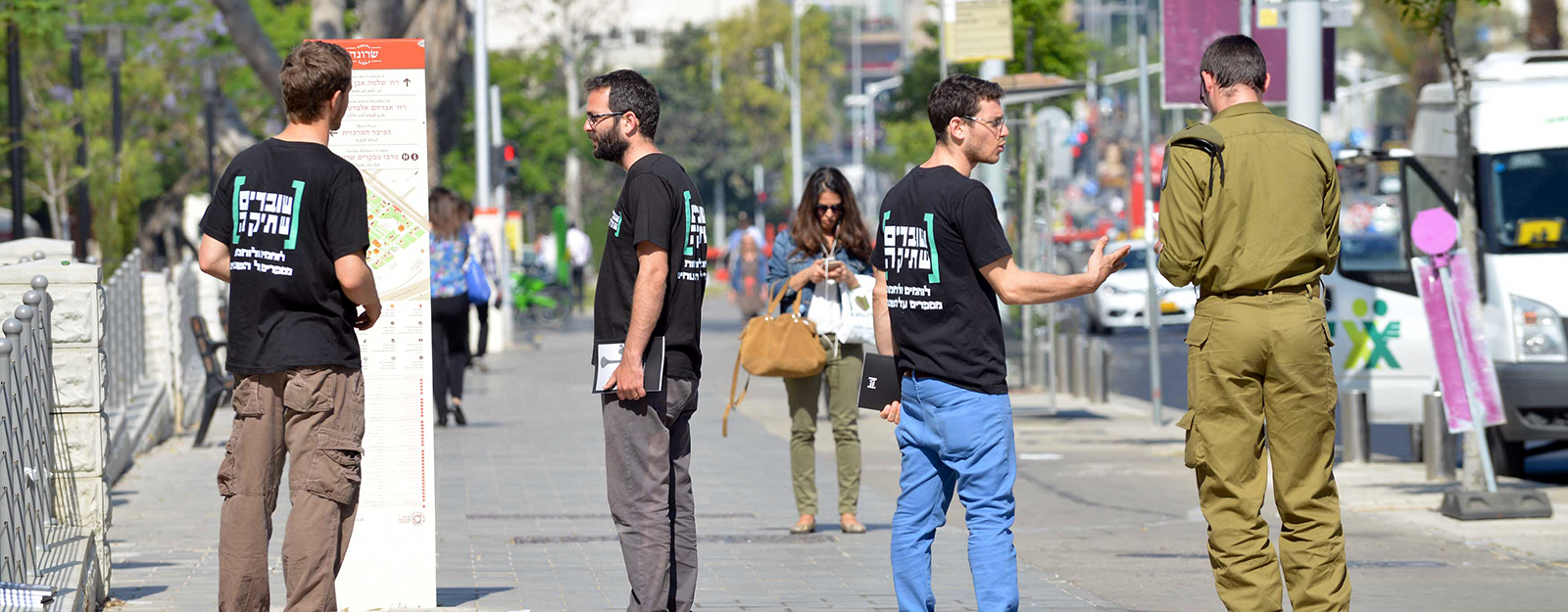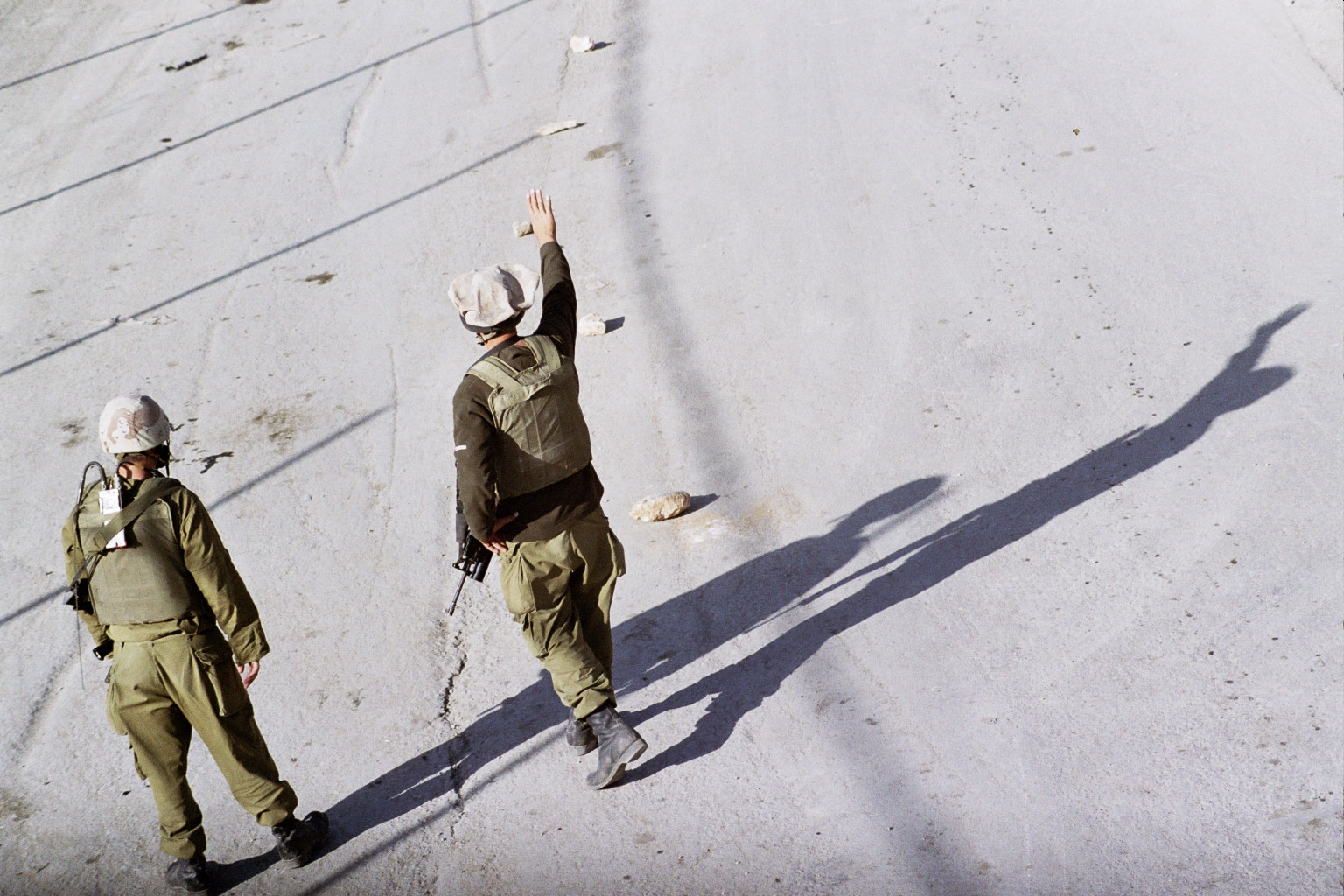And how do you, as a commander, fit into this? I tried to stick to orders and regulations.
That are? Not to arrest anyone who shouldn’t be arrested. Sometimes there was a situation that Patrol 30 (patrolling the western part of the Kasbah in Hebron), somewhere, would run into a group of ten little kids that started cursing Arabs going by, or telling the patrol: “arrest them,” “check them,” all sorts of stuff. In these situations, I understood that the problematic element was these kids, and I would drive them away or call the adults to take them away. And that’s the same kids and parents that later bring me the cookies. It's clear to me that it creates a difficulty. And I’ll say even more: the Jewish community really wanted to come into the base. We told them: guys, you can’t come in. So there would be some distance. You want to bring me cookies, fine, but nothing more.
The guys from Patrol 30 you just mentioned, do you think there’s any chance that the fact they received cookies from the kids affected them?
In a case when a Jewish kid throws a stone at the Arab houses below – since the kid is Jewish and is one of us, and since it’s the same Jewish community that gives us the cookies – then when the army, my soldiers, my squad commander, find themselves facing this kid, their attitude will be completely different than their attitude towards a Palestinian kid that throws a stone at the Jewish community. A Palestinian kid that throws stones at the Jewish community is grabbed by force, taken away, checked and put under arrest. A Jewish kid that throws [stones], will be scolded, "no, no, no, don’t do that," [or they] tell his father that he shouldn’t do that. That's it, basically. In a different situation I did the same thing with Palestinian [kids].
And where is the soldier who receives the cookies in all of this? He’s even more confused, because he has both his personal story, and the story he’s told by the army: now you’re here in order to protect the Jewish community. And what actually happens is that these cookies actually do have an effect. To invite the soldiers for the Friday night dinner when they stay at the base, to invite them to eat dinner at Chabad house, so that they get a better meal than the one the excellent cook can fix at the kitchen of Mitkanim [post]. Today, in retrospect, you ask me if I think there’s an ethical problem? Yes, I do. I’ll say it openly, yes, I do believe that it affects [the soldiers].









 testimonies
testimonies  media & content
media & content 










 The Jewish community has an interest to recruit the army to its ranks
The Jewish community has an interest to recruit the army to its ranks 

 terms of use & privacy policy
terms of use & privacy policy